How to cure insomnia in 12 minutes
While occasional sleep problems are expected, chronic insomnia can affect your health and well-being.
Thankfully, there are several strategies you can use to overcome insomnia and improve the quality of your sleep. 💤
Our tips show you how to cure insomnia in 12 minutes naturally with methods you can practice at home.
Practising mindfulness meditation
Mindfulness is being fully present and aware of your thoughts and surroundings. 🧠
You can reduce stress and relax by focusing on the present moment and letting go of distracting thoughts.
This can help you to fall asleep more easily.
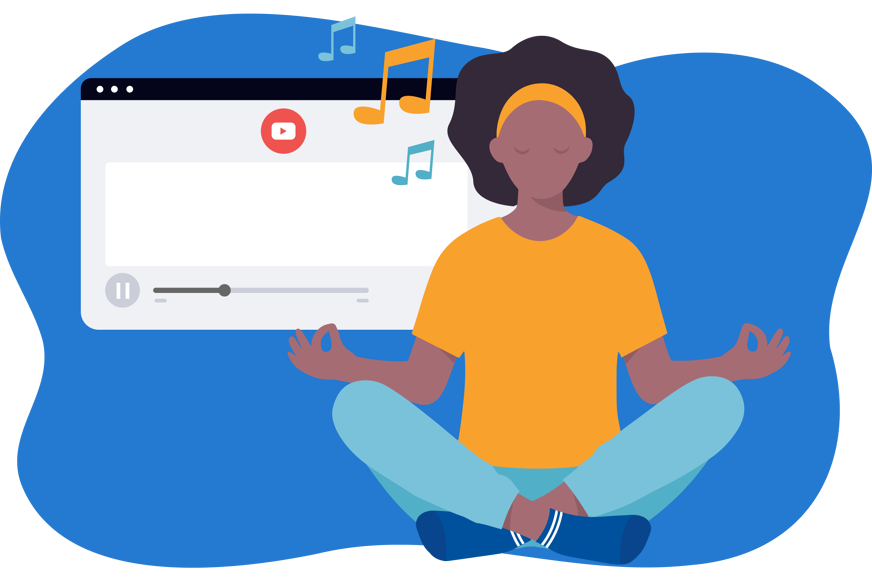
Research [1] has shown that mindfulness meditation can improve sleep quality, reduce insomnia symptoms and shorten the time it takes to fall asleep.
Meditating for 12 minutes before bed daily can help you feel less stressed and anxious.
This will help you get better sleep and have a more restful night. 🌙
You can try mindful meditation apps like BetterSleep, Calm, or Headspace.
Many require a subscription, but YouTube also has free meditation videos you can try first.
We have a full guide on the best meditation apps and include a few handy YouTube videos to help get you started.
Daily exercise
Physical activity can help regulate your circadian rhythm, your body's internal clock that controls your sleep-wake cycle. ⏱️
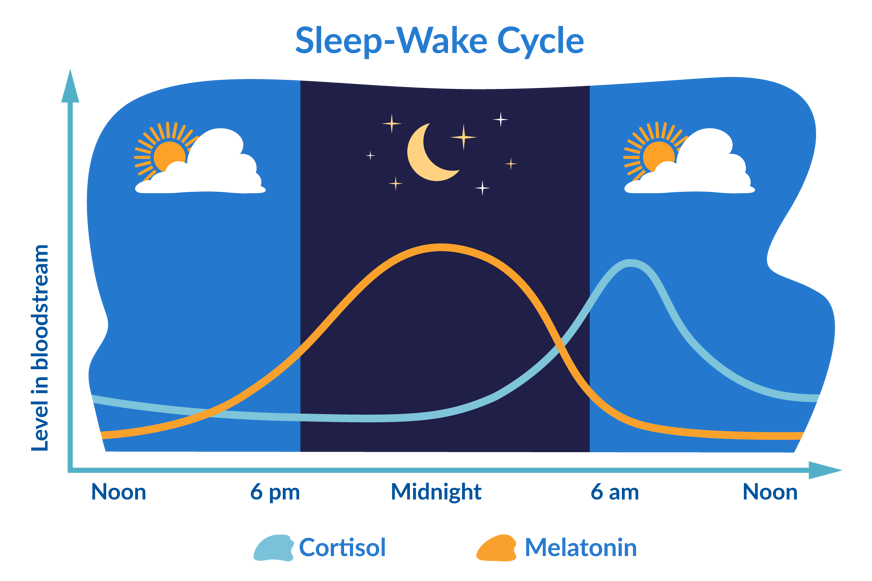
Exercise can also help you manage stress and anxiety, often contributing to insomnia.
In addition, studies [2] have shown that regular exercise improves sleep quality and helps you fall asleep faster.
If you have insomnia, exercise for at least 30 minutes daily.
This can be brisk walking, running, or any other exercise that keeps your body healthy and relieves tension.
However, it's important to know that exercising too close to bedtime can have the opposite effect. 😥
This is because your body temperature rises, making it harder to fall asleep.
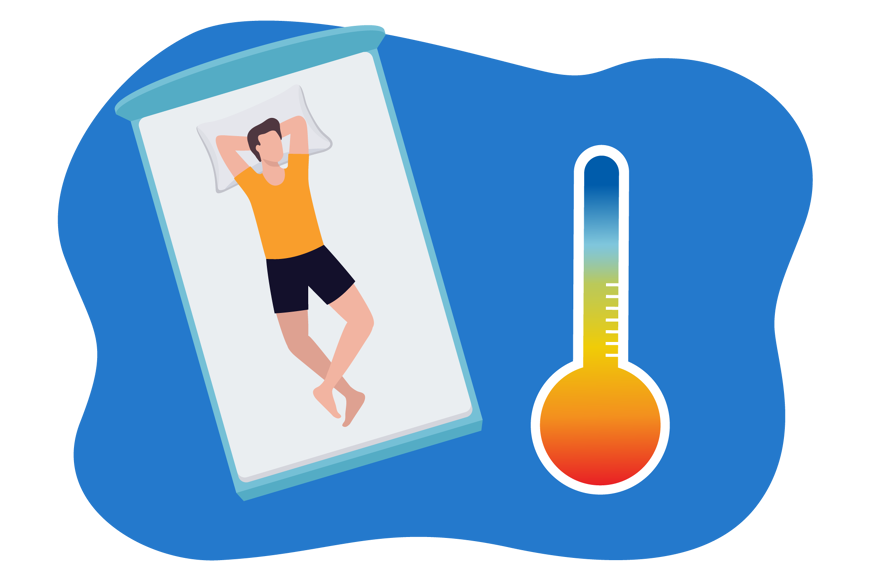
Therefore, finishing your workout at least a few hours before bedtime is best.
You can easily monitor your sleep and health metrics with smart wear like the Oura ring.
This small titanium device tracks sleep duration, phases, body temperature, and activity levels. 🌡️
Taking short naps during the day
Napping alone cannot treat insomnia, but it can help manage daytime sleepiness and improve overall sleep quality.
A short nap, often called a "power nap", can boost energy and improve alertness. 🚨
This can be particularly helpful for individuals struggling with insomnia who may feel excessively tired during the day.
Limit naps to 20 - 30 minutes (set an alarm so that you wake up), rest early in the afternoon, and maintain consistency in your napping schedule.
Practising yoga
Yoga combines physical movement, deep breathing, and mindfulness techniques to reduce stress and promote relaxation. 🧘🏼♀️
This helps you fall asleep more quickly and sleep more deeply.
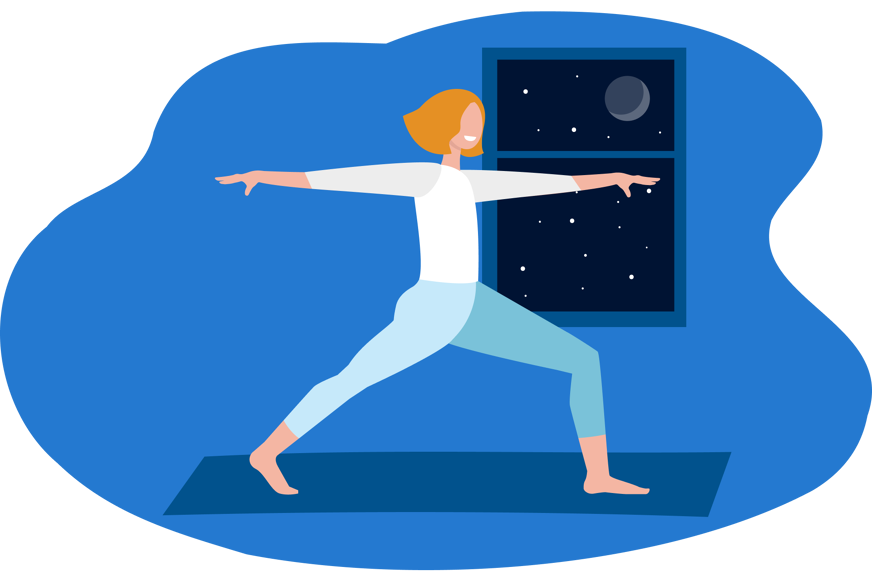
Specific yoga postures and sequences, such as a forward bend [3] and gentle twists [4], can help you calm your mind and relax your body before bed.
Practising yoga regularly for at least 12 minutes can improve your sleep routine for a more restful night.
It's advisable to avoid vigorous or stimulating poses just before bedtime and instead focus on slow, calming movements and deep breathing exercises.
Massage therapy
Massage therapy is a relaxation technique that can help you wind down at night.
A professional massage can help you relax and relieve tension in your muscles. 💆🏻♀️
This can help you sleep better at night.
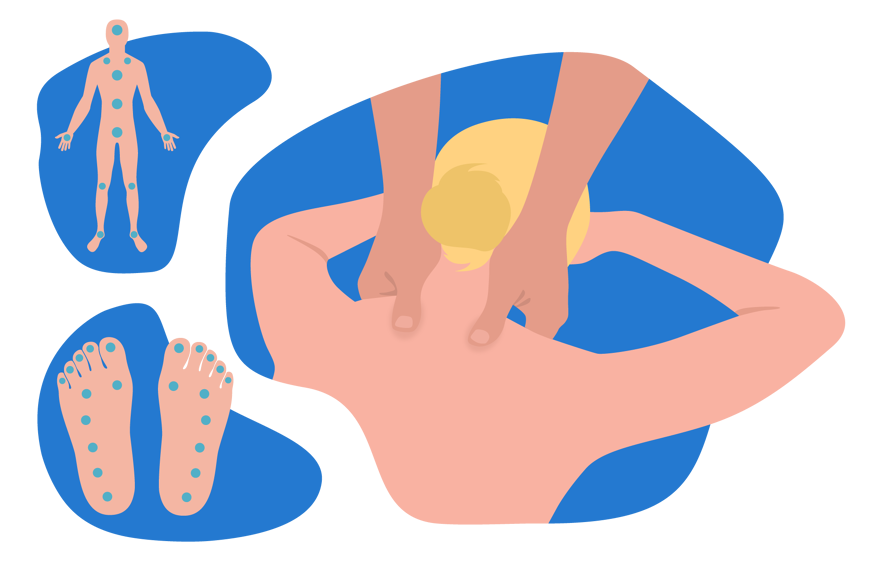
Research [5] has shown that massage therapy is an effective insomnia treatment, as well as other sleep problems.
Massage therapy also stimulates endorphin release, acting as a natural pain reliever and mood booster. 😮💨
Endorphins [6] can help you feel more relaxed and content and make it easier to fall asleep and stay asleep through the night.
Use visualisation techniques
Using visualisation techniques, you can create an image or scene in your mind, which is usually peaceful, calming and relaxing.
Focusing on this image or scene can help calm your mind and reduce the mental chatter that can keep you awake.
You can find many visualisation videos, guided audio recordings or ASMR videos for sleep on YouTube.
Try this 9-minute guided sleep meditation to fall asleep in under 12 minutes:
Visualisation techniques are a great way to relax your mind and overcome insomnia. 🧠
They can be a beneficial tool for getting a good night's sleep, and many individuals find it effective.
Try the 4-7-8 sleep trick
The 4-7-8 sleep trick is a breathing technique that can help to relax and improve sleep.
To practise this trick, you need to lie down comfortably and place the tip of your tongue behind your upper front teeth. 👅
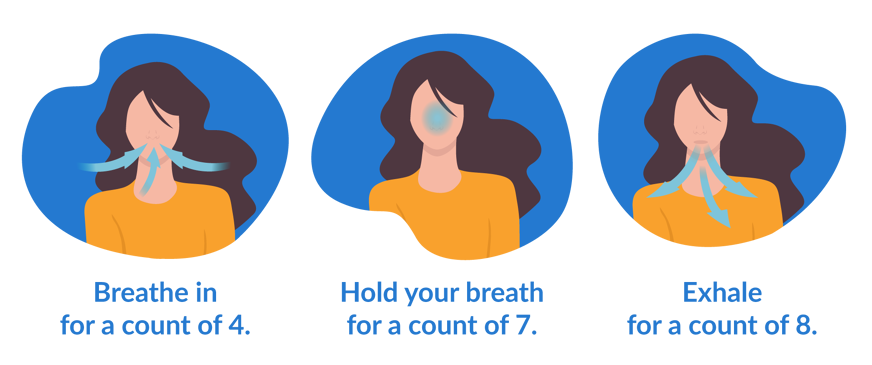
Calmly inhale through your nostrils for 4 counts, then hold your breath for 7.
Then exhale forcefully through the mouth, making a "whoosh" sound for 8 counts.
Repeat 3 more times for a total of four breaths.
The 4-7-8 sleep trick slows your breathing and heart rate, which helps you relax and reduces stress and anxiety.
It can also help regulate your body's natural sleep rhythm and improve the quality of your sleep.
Take melatonin supplements
Those who do shift work or suffer from jet lag may have a disrupted sleep cycle, which can lead to acute insomnia.
Melatonin is a hormone produced by the pineal gland in your brain that helps regulate your body's sleep-wake cycle.
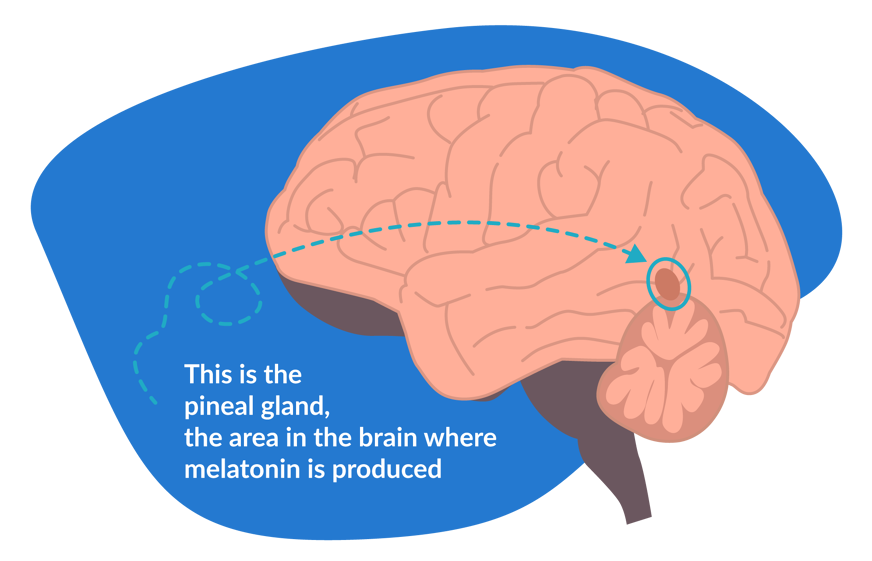
Taking a melatonin supplement can help increase the levels of this hormone in your body, which promotes sleepiness and helps you fall asleep in as little as 12 minutes. 💊
Research [7] has shown that taking a melatonin supplement before bed can help you sleep longer.
One of the benefits of taking melatonin is that it doesn't have the same side effects as other sleep medications, such as fatigue or dizziness.
Also, it's not habit-forming, which means you can take it without worrying about becoming dependent.
Most people consider melatonin safe, but speaking to your doctor first is still important. 👩🏼⚕️
If you're not a fan of pills, you can try drinks and food that contain natural melatonin, such as Horlicks or warm milk.
But what is insomnia?
If you're having trouble sleeping or staying asleep at night, you might be experiencing insomnia.
Insomnia is a sleep disorder that can make it challenging to get the right amount or quality of sleep you need to feel rested and refreshed.
This can lead to tiredness, irritability and difficulty concentrating during the day. 😮💨
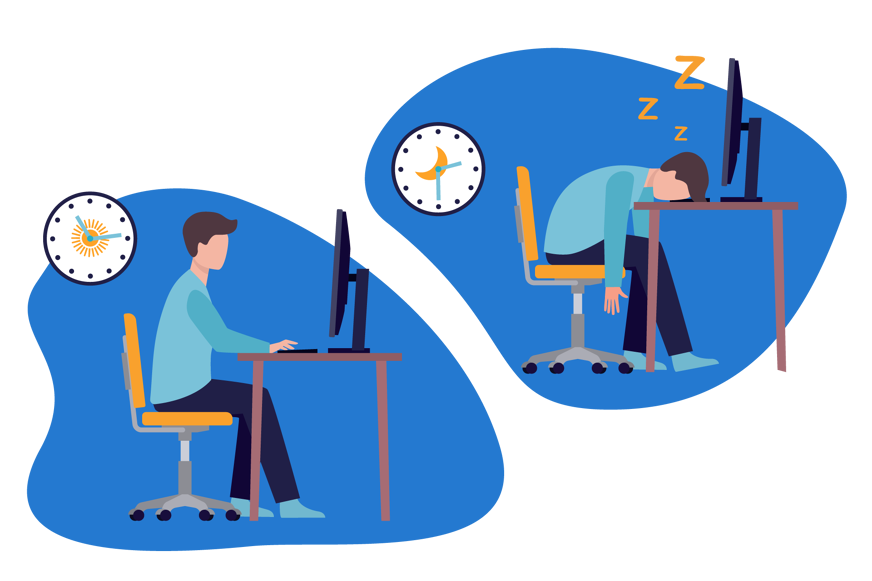
According to statistics [8], around one in three people in the UK suffers from insomnia at some point.
Many people experience short-term insomnia at some point in their life, but some people also suffer from long-term insomnia, which is more serious.
Although insomnia can affect anyone, it is generally more prevalent among older adults.
Scroll up to learn how to cure insomnia quickly with tried and tested methods.
Is it possible to cure insomnia?
Unfortunately, there is no immediate cure for insomnia.
Insomnia can often be addressed and even cured quickly through lifestyle changes and self-care strategies, such as maintaining a regular sleep schedule, practising relaxation techniques, and adopting healthy habits. 🍉
Our techniques may take less or more than 12 minutes, depending on your individual situation, but we suggest trying them all and seeing what works best for you.
Practising our tips on how to overcome insomnia and investing in comfortable sleep accessories like mattresses, pillows, weighted blankets, and sleep masks can also improve sleep.
If persistent sleep problems persist despite these efforts, it's advisable to consult a healthcare professional to identify any underlying sleep disorders or health issues.
You should also consider seeking medical help if you have any of the following problems:
- Difficulty functioning during the day
- Chronic fatigue
- Difficulty concentrating
- Mood swings
- A history of mental health conditions
Insomnia is often the result of underlying factors such as stress, anxiety, poor sleep habits or medical conditions that can be identified and treated.
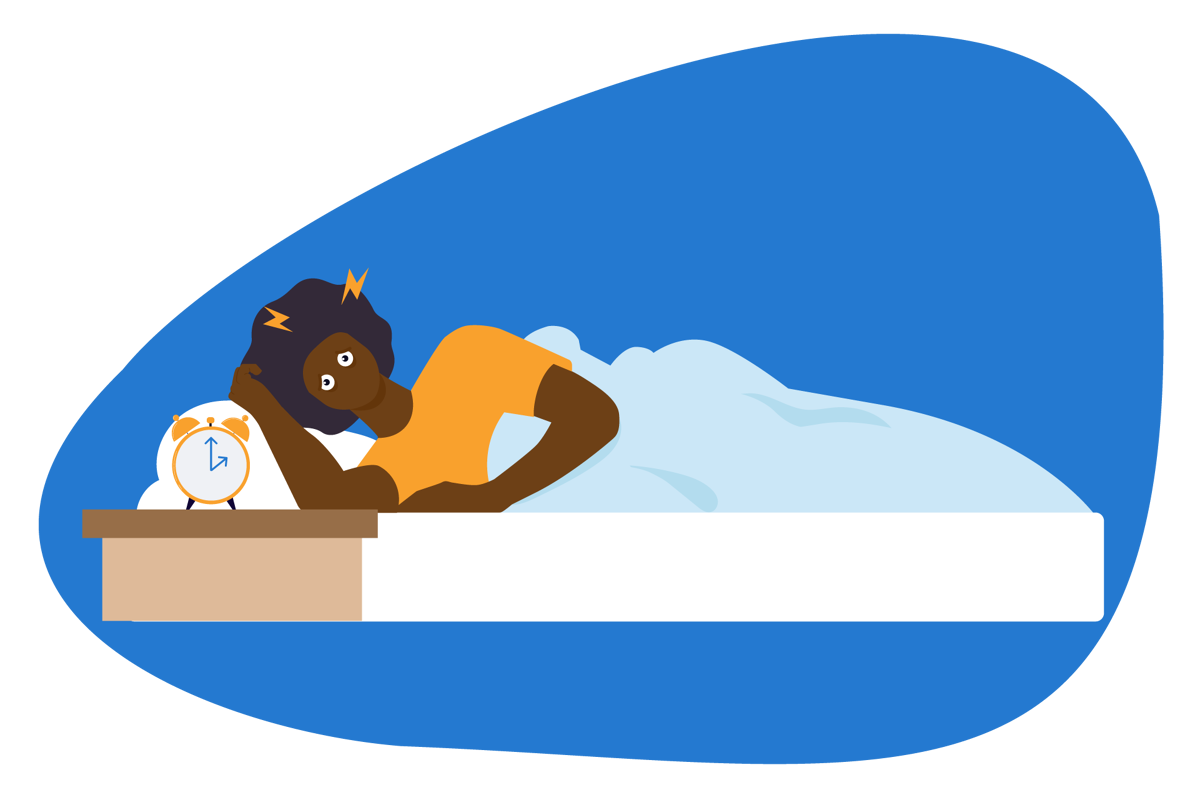





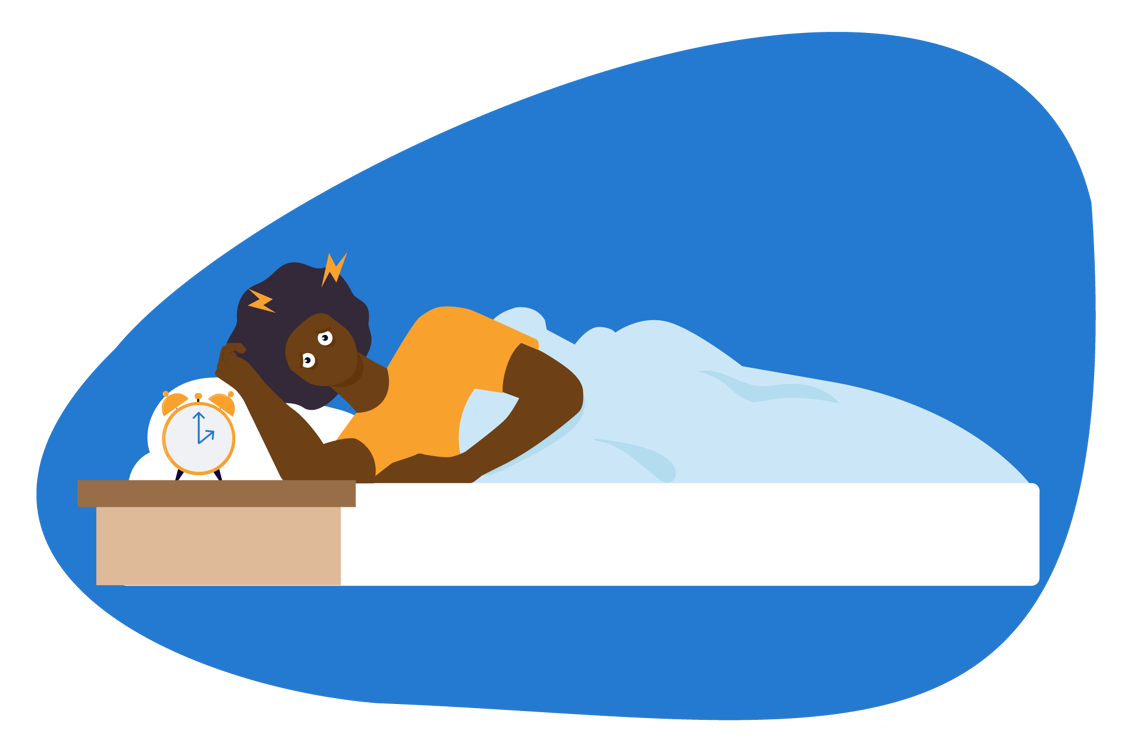
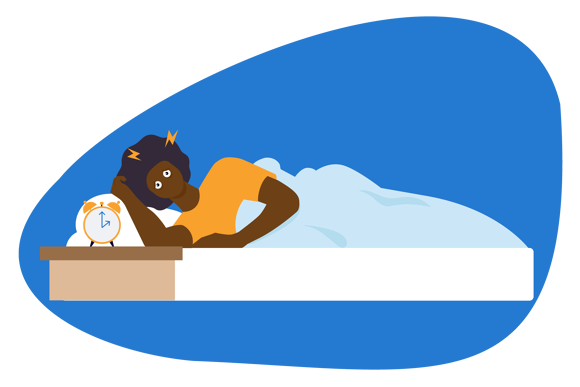
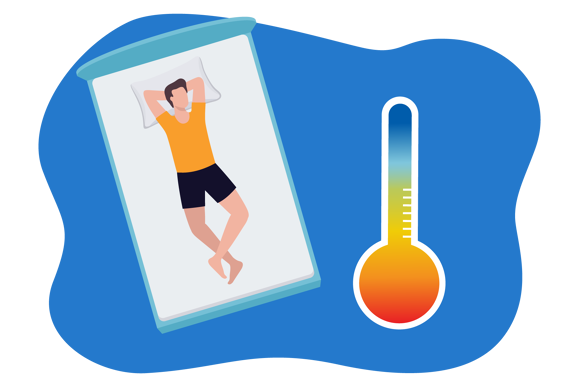
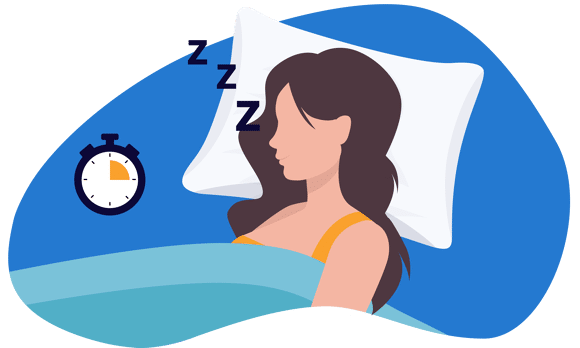


Alternatively, message us directly via the Contact Us page.